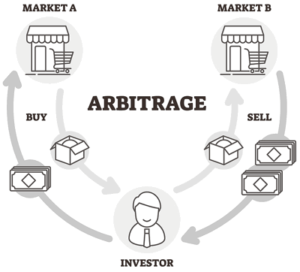 Mention to your average casino or sportsbook visitor the idea that the House always wins and there will be a general acceptance that that is the way such things work. Pretty much everyone knows that the Edge is built into the games that you’d play at a casino and margins are built into sports odds, but not everyone is aware of the fact that bookmakers will often do that little bit extra to ensure that they’re not only in profit but comfortably so. ‘Stake factoring’ is something that we’ve covered elsewhere on this site, albeit in a different guise on account of the fact that it is a process that has different names.
Mention to your average casino or sportsbook visitor the idea that the House always wins and there will be a general acceptance that that is the way such things work. Pretty much everyone knows that the Edge is built into the games that you’d play at a casino and margins are built into sports odds, but not everyone is aware of the fact that bookmakers will often do that little bit extra to ensure that they’re not only in profit but comfortably so. ‘Stake factoring’ is something that we’ve covered elsewhere on this site, albeit in a different guise on account of the fact that it is a process that has different names.
In essence, stake factoring involves grading customers according to how often they win their bets. Those that win more regularly tend to find that their accounts are limited, whilst those that lose often will discover that they’re allowed to bet more money than the standard ‘maximum’ amount. In the eyes of the bookies, of course, there is a feeling that they’re doing nothing wrong, instead they’re simply levelling the playing field against people that are resorting to ‘unfair methods’ in their eyes. Given that you can’t do anything about your stake being factored, is it a fair practice?
Stake Factoring Explained
 When you first open an account with a betting company, you will be assigned a stake factor. This is usually 1 and it means that you can place bets up to 100% of the normal maximum stake. The moment that you place a bet, that stake factor gets adjusted up or down, depending on whether your wager is a winner or a loser. If you’re a winning bettor then you’ll find that your stake factor is reduced by as much as 50% initially, dropping further to 25%, then to 10% and eventually to 1% if you’re too successful at your betting.
When you first open an account with a betting company, you will be assigned a stake factor. This is usually 1 and it means that you can place bets up to 100% of the normal maximum stake. The moment that you place a bet, that stake factor gets adjusted up or down, depending on whether your wager is a winner or a loser. If you’re a winning bettor then you’ll find that your stake factor is reduced by as much as 50% initially, dropping further to 25%, then to 10% and eventually to 1% if you’re too successful at your betting.
If, on the other hand, you tend to lose your bets, you’ll most likely find that your stake factor is increased above 1. This means that you’ll be able to place bets above the normal maximum figure. If the betting company thinks that you’re likely to lose most of your wagers, they’re more than happy to ensure that you spend more money with them. In one example, a losing customer was given a stake factor of 40, meaning that he could lose 40x what a normal punter would be allowed to lose when placing bets on various sports events.
Other Factors Are Considered
 Whilst winning and losing bets is the ultimate deciding factor when choosing to alter someone’s stake factor, it isn’t the only thing that bookmakers take into account. According to one source that worked for a betting company, things such as the job that you do and who you’re friends with on Facebook can be used to decide what your stake factor should be. If an account has a female name but is successful in its bets, this will also flag up as a warning side to the people charged with deciding their stake factor with the bookie.
Whilst winning and losing bets is the ultimate deciding factor when choosing to alter someone’s stake factor, it isn’t the only thing that bookmakers take into account. According to one source that worked for a betting company, things such as the job that you do and who you’re friends with on Facebook can be used to decide what your stake factor should be. If an account has a female name but is successful in its bets, this will also flag up as a warning side to the people charged with deciding their stake factor with the bookie.
In a note of remarkable sexism, if a female account is doing well then it is assumed that it is being run by a male that it using the details of a wife, friend, sister or other female influence. Even the likes of your geographical location can be influential in deciding your stake factor, such is the extent to which suspicious betting patterns have been identified as having come out of such areas in the past. If customers ‘look like bad business’, there will be a call for their accounts to be limited in stages, all the way down to 1% of the maximum stake.
Is It Levelling The Playing Field?
 Bookmakers, unsurprisingly, claim that the practice of stake factoring is entirely fair. In their eyes, what they are doing is limiting the ability of those that they think are tricking the system from doing as much. For the firms, the idea of stake factoring is that it allowed them to level the playing field against those that are using ‘unfair methods’. There are those that engage in using the latency between real-time results and when the information reaches the bookies, for example. There is usually a small delay between the two things, which some try to exploit.
Bookmakers, unsurprisingly, claim that the practice of stake factoring is entirely fair. In their eyes, what they are doing is limiting the ability of those that they think are tricking the system from doing as much. For the firms, the idea of stake factoring is that it allowed them to level the playing field against those that are using ‘unfair methods’. There are those that engage in using the latency between real-time results and when the information reaches the bookies, for example. There is usually a small delay between the two things, which some try to exploit.
A bet might come through for a cricketer to score less than 25 runs, for example, only for the same cricketer to be out on the next ball that is shown in the screen in the bookmaker’s office. Someone will either be on a faster feed or else actually physically in attendance at an event, using this time difference to make money. This, in the eyes of the bookies, is unfair and their accounts therefore need to be limited as much as possible. Then there’s the risk of inside knowledge, such as a trainer who knows a horse is lame or a coach that is aware of a striker that has pulled a muscle.
Those that work in the industry also complain about ‘bonus abusers’, who take advantage of the offers that are sent out regularly by betting companies. Some use a system known as ‘arbing’ to ensure that they can take advantage of incorrect odds to guarantee themselves a profit thanks to an opposite bet with a different bookie. There are even some people that set up bots to identify such mistakes and place small stake wagers that will almost certainly go under the radar of the systems that are supposed to identify such bets and stamp them out.
It Is Not Being Used Fairly
 Whilst it might be considered entirely reasonable for bookmakers to try to stamp out the practice of those that use things to their advantage beyond just their actual knowledge, it seems clear that many companies use stake factoring to cut down on the number of bettors that are able to beat them just by knowing what to bet on. A punter named Bernard Henry, for example, found out the data that Coral held on him and discovered that he’d won just £38 over four years. The company still lowered his stake factor, however, because he’d beaten their odds on 73% of occasions.
Whilst it might be considered entirely reasonable for bookmakers to try to stamp out the practice of those that use things to their advantage beyond just their actual knowledge, it seems clear that many companies use stake factoring to cut down on the number of bettors that are able to beat them just by knowing what to bet on. A punter named Bernard Henry, for example, found out the data that Coral held on him and discovered that he’d won just £38 over four years. The company still lowered his stake factor, however, because he’d beaten their odds on 73% of occasions.
In the eyes of most, bookmakers have become ‘trigger happy’ when looking to clamp down on arbers and other unfair practitioners. A worker for numerous bookies said that around 65-70% of accounts were correctly factored, which left as much as a third of accounts that have been limited incorrectly. Customers that are referred to as ‘warm’ in the industry, which are those that are merely clever operators, tend to get their stake limit reduced to 0.1. This is in contrast to accounts that are merely considered to be ‘unprofitable’, which are reduced to 0.3.
It is difficult to argue that the use of stake factoring has been fair in such instances. For most companies, the stake factoring process has been automated. This means that claims from the likes of Paddy Power that ‘safer-gambling checks’ would override a stake factoring decision are questionable at best. Though stake factoring is clearly an industry-wide practice, that doesn’t necessarily mean that it is a fair and correct one. Should bettors that win really be stopped from placing big bets at the same time as those that lose are encouraged to bet more?
They Won’t Close Accounts Entirely
 The interesting thing is that, in the vast majority of cases, bookmakers won’t shut down accounts completely. Indeed, when it comes to customers that are ‘warm’ in their betting, they are used as marks by the bookies. On occasions when they place a bet, what they’re betting on will be looked at to see if the company has indeed got its prices wrong. Even those that engaging in arbing, which is seen as cheating in the industry, would simply find that their stake factor is set at 0.1 rather than their account closed altogether.
The interesting thing is that, in the vast majority of cases, bookmakers won’t shut down accounts completely. Indeed, when it comes to customers that are ‘warm’ in their betting, they are used as marks by the bookies. On occasions when they place a bet, what they’re betting on will be looked at to see if the company has indeed got its prices wrong. Even those that engaging in arbing, which is seen as cheating in the industry, would simply find that their stake factor is set at 0.1 rather than their account closed altogether.
A part of the reason for this is that closing them all down would see bookmakers lose the majority of their customers. As one person put it, closing down all bad accounts would see the number of active customers drop from 50,000 to 10,000. Given the manner in which companies have to answer to their shareholders, who tend to use customer numbers as a measurement of success, such a move would set alarm bells ringing. The City investors don’t want to see the likes of Paddy Power and Betfair shedding such a large number of customers.
Can You Avoid Getting Your Stake Factored?
 One of the obvious questions that you might want to ask is whether there is a way of avoiding finding your account become the victim of stake factoring. The short answer is no, given that any account that wins regularly will be flagged up and automatically see the stake factored. The longer answer, though, is that you can, at the very least, look to confuse the system. As an example, most bookmakers consider accounts that use the casino section of their website as being positive accounts, given that casinos always win in the long-term.
One of the obvious questions that you might want to ask is whether there is a way of avoiding finding your account become the victim of stake factoring. The short answer is no, given that any account that wins regularly will be flagged up and automatically see the stake factored. The longer answer, though, is that you can, at the very least, look to confuse the system. As an example, most bookmakers consider accounts that use the casino section of their website as being positive accounts, given that casinos always win in the long-term.
Equally, losing some wagers every now and then is not a bad thing. You don’t even necessarily need to deliberately lose your bets. Instead, you can place a bet on an outcome that you hope will happen, even if it’s unlikely. If you’re a football fan, for example, you could bet on your team losing their match even when they’re favourites. If they win, you look good to the bookie because you’ve lost money, whilst if they lose then you’ve won yourself what is likely to be a tidy bit of profit.
